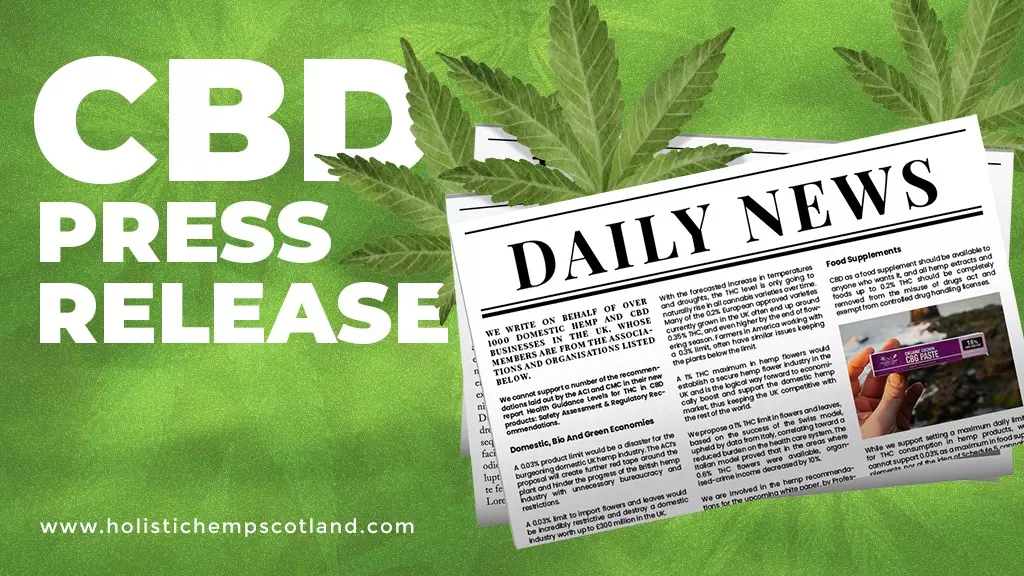Recent Posts
Post Catagories

We write on behalf of over 1000 domestic hemp and CBD businesses in the UK, whose members are from the associations and organisations listed below.
We cannot support a number of the recommendations laid out by the ACI and CMC in their new report Health Guidance Levels for THC in CBD products: Safety Assessment & Regulatory Recommendations.
Domestic, Bio And Green Economies
A 0.03% product limit would be a disaster for the burgeoning domestic UK hemp industry. The ACI’s proposal will create further red tape around the plant and hinder the progress of the British hemp industry with unnecessary bureaucracy and restrictions.
A 0.03% limit to import flowers and leaves would be incredibly restrictive and destroy a domestic industry worth up to £300 million in the UK.
With the forecasted increase in temperatures and droughts, the THC level is only going to naturally rise in all cannabis varieties over time. Many of the 0.2% European approved varieties currently grown in the UK often end up around 0.35% THC, and even higher by the end of flowering season. Farmers in America working with a 0.3% limit, often have similar issues keeping the plants below the limit.
A 1% THC maximum in hemp flowers would establish a secure hemp flower industry in the UK and is the logical way forward to economically boost and support the domestic hemp market, thus keeping the UK competitive with the rest of the world.
We propose a 1% THC limit in flowers and leaves, based on the success of the Swiss model, upheld by data from Italy, correlating toward a reduced burden on the health care system. The Italian model proved that in the areas where 0.6% THC flowers were available, organised-crime income decreased by 10%.
Food Supplements
CBD as a food supplement should be available to anyone who wants it, and all hemp extracts and foods up to 0.2% THC should be completely removed from the misuse of drugs act and exempt from controlled drug handling licenses.
While we support setting a maximum daily limit for THC consumption in hemp products, we cannot support 0.03% as a maximum in food supplements, nor of the idea of Schedule 5 cannabis medicines for products containing 0.03-0.2% THC.
The mentions of drug abuse in a report about nutritional supplements, which we know are safe as the UN removed the Schedule IV on CBD do nothing to improve the public’s perception of the important health benefits of the hemp plant.
These recommendations are hugely damaging to a burgeoning industry that is visibly flourishing globally, where there are no restrictions.
We are involved in the hemp recommendations for the upcoming white paper, by Professor Mike Barnes, that represents our views for the future of the Hemp industry. The white paper is backed by:
- All Party Parliamentary Group For Drug Reform
- British Hemp Alliance
- Cancard
- Cannabis Health Magazine
- Cannabis Trades Association
- Cannapro
- Clear
- Mackrell Solicitors
- Medcann
- Medical Cannabis Clinicians Society
- Northern Ireland Hemp Association
- Prohibition Partners
- Scottish Hemp Association
As leaders of the UK hemp industry, it is imperative that we have our opportunity to be represented before any legal decisions are made. We look forward to the upcoming release of this White Paper and welcome a discussion about this serious and time sensitive situation arising with industry regulators.
British Hemp Alliance
Cannabis Trades Association
Northern Ireland Hemp Association
Scottish Hemp Association

